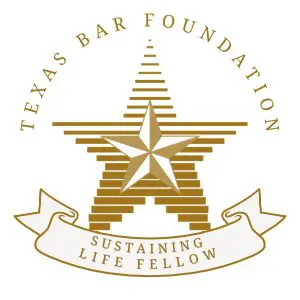State and federal law enforcement agencies have made disrupting drug trafficking in North Texas a top enforcement priority. If you are under investigation for a drug trafficking offense, your first and most important step is to consult a skilled Texas drug trafficking attorney who understands how these high-stakes cases are built and prosecuted.
The federal government has immense resources and a conviction rate of over 90 percent in the cases it pursues. Securing experienced legal representation as early as possible can make all the difference. A single misstep, a poorly worded response to an investigator, or a delay in getting help can have permanent consequences for your freedom, your family, and your future.
Take the first step in your defense by calling Whalen Law Office at (214) 368-2560 for a confidential consultation.
Table of Contents
- Why You Need a Former Prosecutor as Your Texas Drug Trafficking Lawyer
- Are You Under Investigation? How Texas Builds a Drug Trafficking Case
- Common Drug Trafficking Offenses in Texas
- Penalties for Drug Trafficking Are Severe
- How a Strategic Defense Can Fight Drug Trafficking Charges
- Under Investigation for Drug Trafficking? We Are Here to Help
Why You Need a Former Prosecutor as Your Texas Drug Trafficking Lawyer
 When you are facing the power of state or federal law enforcement agencies such as the DEA or the Texas Department of Public Safety, you need more than just a capable attorney. You need a defense team that understands how narcotics cases are built from the inside out.
When you are facing the power of state or federal law enforcement agencies such as the DEA or the Texas Department of Public Safety, you need more than just a capable attorney. You need a defense team that understands how narcotics cases are built from the inside out.
At Whalen Law Office, our approach is shaped by direct experience working within the prosecutor’s office. This background gives us a strategic advantage when representing clients charged with serious drug offenses.
We have handled complex narcotics cases from both sides of the courtroom. We know how prosecutors evaluate evidence, how they rely on confidential informants, and how they use conspiracy charges to apply pressure on defendants.
With this insight, we are able to anticipate the government’s strategy, uncover weaknesses in police procedures, and develop a defense that challenges their case at every stage.
We take action early in the process, often before formal charges are filed. Our goal is to protect your rights and influence how the case unfolds from the beginning.
Led by Board Certified Criminal Law Specialist James Whalen, our attorneys are equipped to manage the most intricate aspects of drug trafficking litigation. We carefully review search warrants for legal issues, contest unlawful traffic stops, and scrutinize the testimony of informants and undercover officers.
Whether your case involves a traffic stop on the Dallas North Tollway or a broader investigation into alleged drug trafficking across state lines, we are prepared to stand between you and the government.
We proudly represent clients in Frisco, Plano, and throughout Texas, with a clear focus on defending your liberty, your constitutional rights, and your future.
Are You Under Investigation? How Texas Builds a Drug Trafficking Case
Drug trafficking investigations are often complex and covert, involving months of surveillance and evidence gathering before an arrest is ever made. Understanding these tactics is the first step toward building a strong defense.
How Confidential Informants Are Used in Texas Drug Trafficking Cases
Many state and federal drug cases are built on the word of a confidential informant (CI). A CI is often a person facing their own criminal charges who agrees to work with the police in exchange for leniency.
These informants can be deeply unreliable, with a powerful motive to lie or embellish facts to please investigators. A drug trafficking attorney must aggressively challenge the credibility and motives of any CI involved in your case.
Police also use undercover officers to arrange controlled buys of narcotics. These transactions are typically recorded and are used as direct evidence to support trafficking charges. Your defense must scrutinize the entire operation for signs of entrapment or other police misconduct.
Pretext Traffic Stops on North Texas Highways
A significant number of drug trafficking arrests in Collin, Denton, and Dallas counties begin with a traffic stop on major highways like US-75, I-35, or the Dallas North Tollway. Police are trained to use minor traffic violations as a pretext to pull over vehicles they suspect of transporting drugs.
During the stop, the officer will look for indicators of criminal activity to justify extending the detention and asking for consent to search the vehicle. An illegal stop, a detention that is unlawfully prolonged, or an unconstitutional search can lead to all evidence being suppressed by the court.
Execution of Search Warrants
In more extensive investigations, law enforcement may obtain a search warrant to enter and search a home, business, or storage unit. To secure that warrant, an officer must present a sworn affidavit to a judge, outlining the probable cause to believe that evidence of a crime will be found at the specific location.
However, search warrants are not immune to challenge. A skilled drug trafficking lawyer will carefully examine the affidavit for issues such as false or misleading statements, outdated or unreliable information, or a failure to clearly connect the location to alleged criminal activity.
If the warrant is found to be legally deficient, the search can be ruled invalid, and any evidence obtained may be suppressed in court.
Wiretaps and Electronic Surveillance
In federal conspiracy investigations, prosecutors often rely on advanced surveillance methods that require court approval. This can include wiretapping phone calls, monitoring emails and text messages, and placing GPS trackers on vehicles.
These investigative tools are subject to strict legal standards. If law enforcement fails to follow the proper procedures, it may be possible to challenge the surveillance in court. Any evidence gathered in violation of these rules can potentially be suppressed, weakening the government’s case.
If you’re accused of drug trafficking, your case could be handled in either a Texas state court or a federal court. The decision often depends on how much of the drug was involved and whether a federal agency, like the DEA, took part in the investigation.
A knowledgeable drug trafficking defense lawyer needs to be ready to navigate the different rules and procedures in both systems.
Texas State Drug Trafficking Charges
In Texas, drug crimes are charged under the Texas Health and Safety Code, Chapter 481. How serious the charge is depends mainly on two things:
- Penalty Group: Texas puts drugs into different categories called Penalty Groups. Penalty Group 1 includes the most dangerous and heavily penalized drugs, such as cocaine, heroin, meth, and fentanyl. Penalty Group 2 includes drugs like ecstasy (MDMA) and PCP. Marijuana is classified separately.
- Weight: The total weight of the drug, including any filler or cutting agents, determines the level of the charge. For instance, if someone is caught with more than 400 grams of a Penalty Group 1 drug and intends to sell it, they could face a first-degree felony, with a sentence ranging from 15 years to life in prison.
Whether you’re facing state or federal charges, drug trafficking accusations carry severe penalties. Understanding how the laws work and having the right legal defense in place from the beginning can make a critical difference in the outcome of your case.
When Drug Trafficking Becomes a Federal Case
A drug case is typically prosecuted in federal court if it involves large quantities of narcotics, crossing state lines, or investigation by a federal agency like the Drug Enforcement Administration (DEA). Federal drug crimes are governed by the Controlled Substances Act, primarily 21 U.S.C. § 841.
Federal prosecutors frequently use conspiracy charges, which allow them to charge numerous people involved in a single drug enterprise, even those with minor roles. Federal law also imposes harsh mandatory minimum sentences for trafficking certain quantities of drugs.
Common Drug Trafficking Offenses in Texas

Drug trafficking charges in the Dallas–Fort Worth area can cover a variety of activities. State and federal prosecutors take these cases very seriously and often pursue them aggressively.
- Possession with Intent to Deliver: This is the most common trafficking-related charge. The “intent to deliver” is often inferred from circumstantial evidence, such as the amount of drugs, the presence of scales, baggies, or large amounts of cash.
- Manufacturing or Cultivation: This includes any step in the drug production process, from operating a methamphetamine lab to cultivating marijuana or pressing pills containing fentanyl.
- Drug Conspiracy: A person can be charged with conspiracy for simply agreeing with others to violate drug laws and taking one step to further that agreement. You can be held responsible for the actions of all other co-conspirators.
These charges are broad and often based on more than just direct evidence. If you’re facing any drug trafficking allegation, it’s important to have a strong legal defense to protect your rights and future.
Penalties for Drug Trafficking Are Severe
A drug trafficking conviction is a serious felony that can have lasting consequences. Harsh sentencing laws at both the state and federal levels often mean long prison terms and a permanent impact on your future.
Texas State and Federal Prison Time
In Texas, a conviction can result in a sentence ranging from a state jail term to life in prison. In the federal system, many drug trafficking offenses carry mandatory minimum sentences.
As explained by the U.S. Sentencing Commission, a mandatory minimum is a specific prison term a judge is required to impose, regardless of the individual circumstances. These can range from 5, 10, or 20 years to life in federal prison without parole.
Crippling Fines and Asset Forfeiture
Along with long prison sentences, a drug trafficking conviction can result in extremely high fines, sometimes reaching hundreds of thousands or even millions of dollars.
In addition, both state and federal laws allow the government to take property they claim was bought with drug money or used to commit the crime. This is known as asset forfeiture, a program heavily utilized by the Department of Justice.
The government can try to seize your cash, vehicles, home, bank accounts, and other valuable assets, sometimes even before you are convicted.
How a Strategic Defense Can Fight Drug Trafficking Charges

A drug trafficking charge requires immediate action. The first step in a solid defense is conducting an independent, thorough review of the prosecution’s case.
Challenging the Legality of the Search and Seizure
Many drug cases are won or lost based on how the evidence was obtained. A successful defense often involves challenging the legality of the government’s conduct through a Motion to Suppress Evidence.
If the police violated your Fourth Amendment rights through an illegal traffic stop, an invalid search warrant, or a search that exceeded the scope of your consent, all evidence found as a result might be deemed inadmissible, potentially crippling the prosecution’s case.
Attacking the Integrity of the Government’s Evidence
The government must prove every element of its case beyond a reasonable doubt. A strong defense will scrutinize the evidence at every step.
This involves questioning the reliability and motives of a confidential informant, challenging the forensic lab’s analysis of the substance’s weight and identity, and exposing any breaks in the chain of custody of the alleged narcotics.
Contesting Knowledge, Possession, and Intent
The government must prove that you knowingly possessed the illegal substance. A defense can argue that you were merely present at a location where drugs were found but had no knowledge of or control over them. In cases involving possession with intent, the defense can present evidence that the drugs were for personal use, not for sale or distribution.
Under Investigation for Drug Trafficking? We Are Here to Help
If you’re facing state or federal drug trafficking charges in Frisco, Collin County, or anywhere in Texas, you need experienced legal counsel immediately.
You do not have to face this situation on your own. A skilled legal team can help you understand what to expect, protect your constitutional rights, and begin preparing a strong defense right away.
At Whalen Law Office, we bring insider knowledge from the prosecutor’s office to fight for your rights. Call (214) 368-2560 now for a free, confidential consultation.
Whalen Law Office – Frisco Location
9300 John Hickman Pkwy #501
Frisco, TX 75035
P: (214) 368-2560





